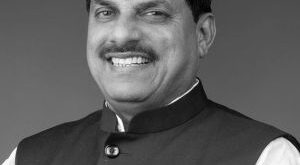Over the last decade, Delhi has always been in the news for its high pollution levels. This ill-famed legacy seems to have worsened even more, as the World Health Organization (WHO) recently rated Delhi the most polluted city in the world. As per the report published by WHO, PM 2.5 and PM 10 levels in Delhi have consistently remained in the ‘severe’category, above 253 and 421 micro gram per cubic meters respectively. This is a cause for concern since the mandated safe levels of PM 2.5 and PM 10 are 60 and 100 respectively. High PM 2.5 and PM 10 levels can lead to a range of ailments such as respiratory problems, heart disease, cancer, etc.
However, this recent rating by WHO seems to be having a positive effect, as central and state authorities are finally waking up to the need to control the capital’s pollution levels and promote environment conservation. In recent times, the authorities have introduced a number of steps aimed at curbing Delhi’s air pollution. Some of these are given below:
- The odd-even rule – Desperate times call for desperate measures, and this is exactly what the Delhi Government’s odd-even rule is all about. As per the odd-even rule, cars with odd-numbered registration plates would be allowed on the roads only on odd dates and those with even-numbered registration plates would ply on even dates. To make this a success, the government will introduce 1,000 additional buses in 3 months. Further, 9,000 CNG contract carriages will also be put into service. If properly implemented and with support from the masses, this rule can significantly reduce Delhi’s high pollution levels.
- Ban on diesel cars – The Supreme Court has come out in support of the government’s efforts to reduce pollution in Delhi. As per a recent order, the Supreme Court has banned the registration of luxury SUVs and diesel cars above 2000 cc in Delhi. Car manufacturers are not happy with this decision, but it’s certainly good in terms of reducing the city’s pollution levels.
- Hike in green cess – The green cess on commercial vehicles entering Delhi has been increased by 100%. This is aimed at reducing the number of commercial vehicles entering Delhi.
- CNG for taxis – All taxis in the city are required to convert to CNG by March 2016. Further, commercial vehicles registered prior to 2005 will not be allowed to enter the national capital.
- Burning of waste – Strict action will be taken against people involved in burning of waste. The government will also impose fine on emission of construction dust.
- Shutdown of power plants – The authorities are evaluating a plan to shut down the Badarpur Thermal power station in Delhi and the Dadri power plant in Uttar Pradesh.
- Tree plantation drive – The authorities will be undertaking a massive plantation drive along all the arterial roads in Delhi. This will add the much needed clean air to the city.
- Euro VI – The government is working on a proposal to make Euro VI standards mandatory for all vehicles, from 2017 onwards.
Most of these steps seem adequate; however, the real battle would be fought during the implementation stage. The government needs to launch awareness campaigns simultaneously to seek peoples’ support for these initiatives and eventually realize the dream of a clean, green Delhi.
 Newspatrolling.com News cum Content Syndication Portal Online
Newspatrolling.com News cum Content Syndication Portal Online





